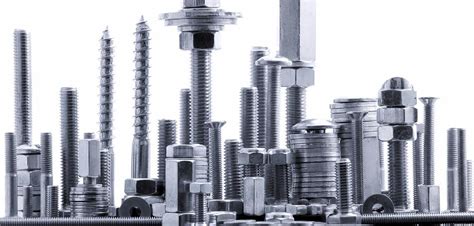High-tech fasteners have become an essential component in various industries, transforming the way companies approach engineering, manufacturing, and product design. These innovative solutions have revolutionized the way we think about assembly, connection, and even materials science. As technology continues to advance at a rapid pace, the demand for high-tech fasteners is on the rise, and it's essential to understand their significance and applications.
From aerospace to automotive, medical devices to consumer electronics, high-tech fasteners play a critical role in ensuring the safety, efficiency, and reliability of products. They offer a unique combination of strength, durability, and versatility, making them an attractive option for industries that require high-performance solutions. In this article, we'll delve into the world of high-tech fasteners, exploring their benefits, applications, and the latest trends shaping the industry.
Understanding High-Tech Fasteners
High-tech fasteners are specialized components designed to provide exceptional strength, corrosion resistance, and durability in demanding environments. They are often made from advanced materials, such as titanium, stainless steel, or exotic alloys, which offer improved performance characteristics compared to traditional fasteners. These fasteners are engineered to meet specific requirements, including high-temperature resistance, electrical conductivity, or non-magnetic properties.

Types of High-Tech Fasteners
High-tech fasteners come in various forms, each designed to address specific industry needs. Some of the most common types include:
- Aerospace Fasteners: Designed for the aerospace industry, these fasteners are made from high-strength, lightweight materials, such as titanium or aluminum.
- Stainless Steel Fasteners: Ideal for applications where corrosion resistance is critical, such as in the chemical or food processing industries.
- Exotic Alloy Fasteners: Engineered for extreme environments, these fasteners are made from rare and specialized materials, like Inconel or Monel.
- Specialty Fasteners: Custom-designed for specific industries, such as medical devices or consumer electronics.
Industry Applications
High-tech fasteners have far-reaching applications across various industries, including:
- Aerospace: High-strength fasteners are used in aircraft and spacecraft to ensure safety and reliability.
- Automotive: High-tech fasteners are used in the production of high-performance vehicles, including electric and hybrid cars.
- Medical Devices: Specialized fasteners are used in medical implants, diagnostic equipment, and surgical instruments.
- Consumer Electronics: High-tech fasteners are used in the production of smartphones, laptops, and other electronic devices.

Benefits of High-Tech Fasteners
High-tech fasteners offer numerous benefits, including:
- Improved Performance: High-tech fasteners provide exceptional strength, durability, and corrosion resistance.
- Increased Efficiency: Specialized fasteners can streamline manufacturing processes and reduce assembly time.
- Enhanced Safety: High-tech fasteners ensure the reliability and safety of products, particularly in critical applications.
- Reduced Maintenance: High-tech fasteners minimize the need for maintenance and repair, reducing costs and downtime.
Latest Trends in High-Tech Fasteners
The high-tech fastener industry is constantly evolving, with new trends and innovations emerging regularly. Some of the latest developments include:
- Additive Manufacturing: The use of 3D printing technology to produce complex fastener designs and geometries.
- Advanced Materials: The development of new materials, such as graphene and nanomaterials, which offer improved performance characteristics.
- Smart Fasteners: The integration of sensors and IoT technology into fasteners to enable real-time monitoring and predictive maintenance.

Challenges and Opportunities
While high-tech fasteners offer numerous benefits, there are also challenges and opportunities to consider:
- Material Selection: Choosing the right material for a specific application can be complex and require expert knowledge.
- Design and Engineering: High-tech fasteners often require specialized design and engineering expertise.
- Supply Chain Management: Ensuring a reliable supply chain for high-tech fasteners can be challenging, particularly in high-demand industries.






As we move forward in an increasingly technological world, the demand for high-tech fasteners will only continue to grow. By understanding the benefits, applications, and latest trends in high-tech fasteners, industries can unlock new opportunities for innovation, efficiency, and growth. Whether you're an engineer, manufacturer, or simply a curious enthusiast, the world of high-tech fasteners has something to offer.
We'd love to hear your thoughts on high-tech fasteners! Share your experiences, ask questions, or provide insights in the comments below.
